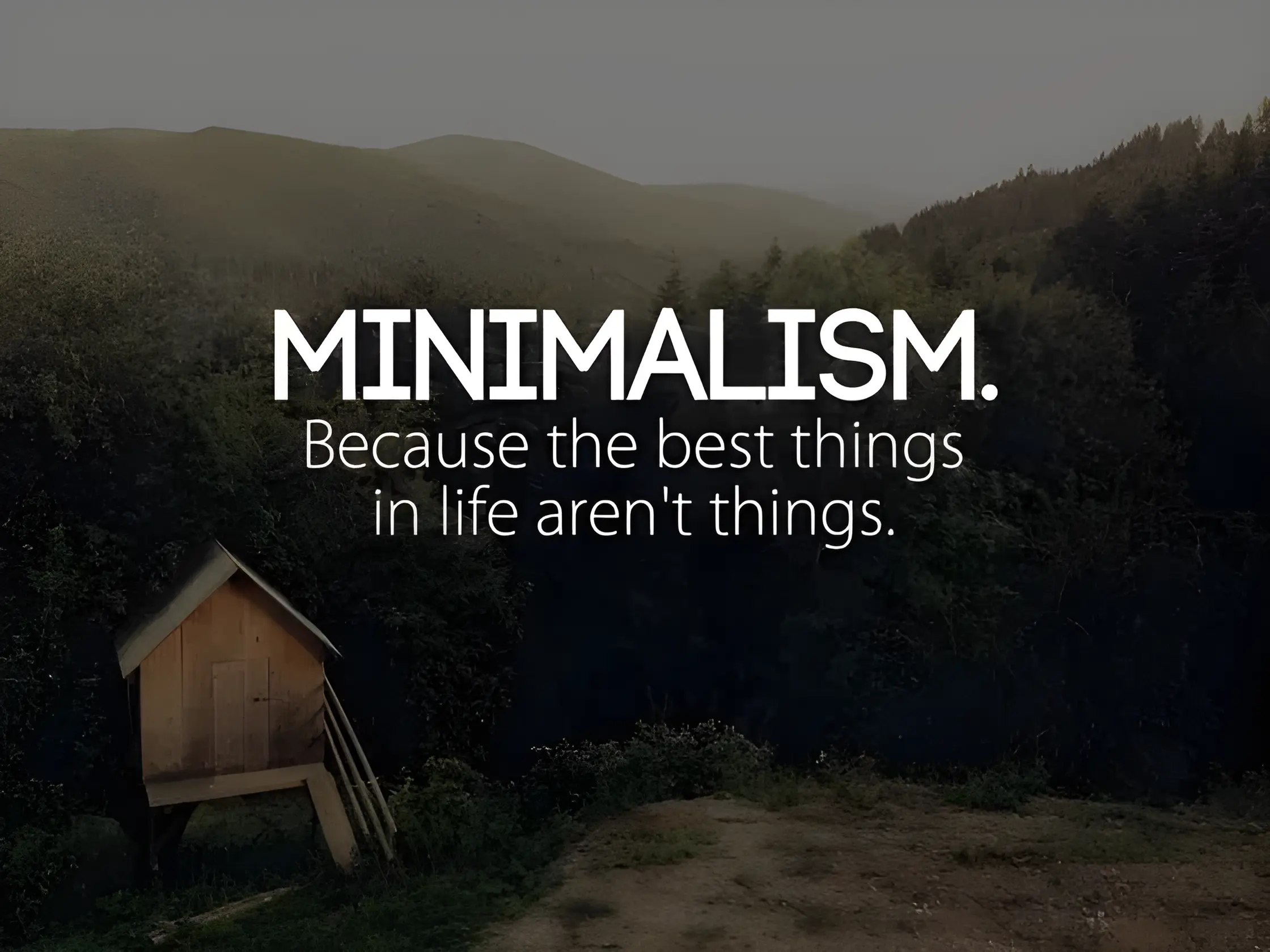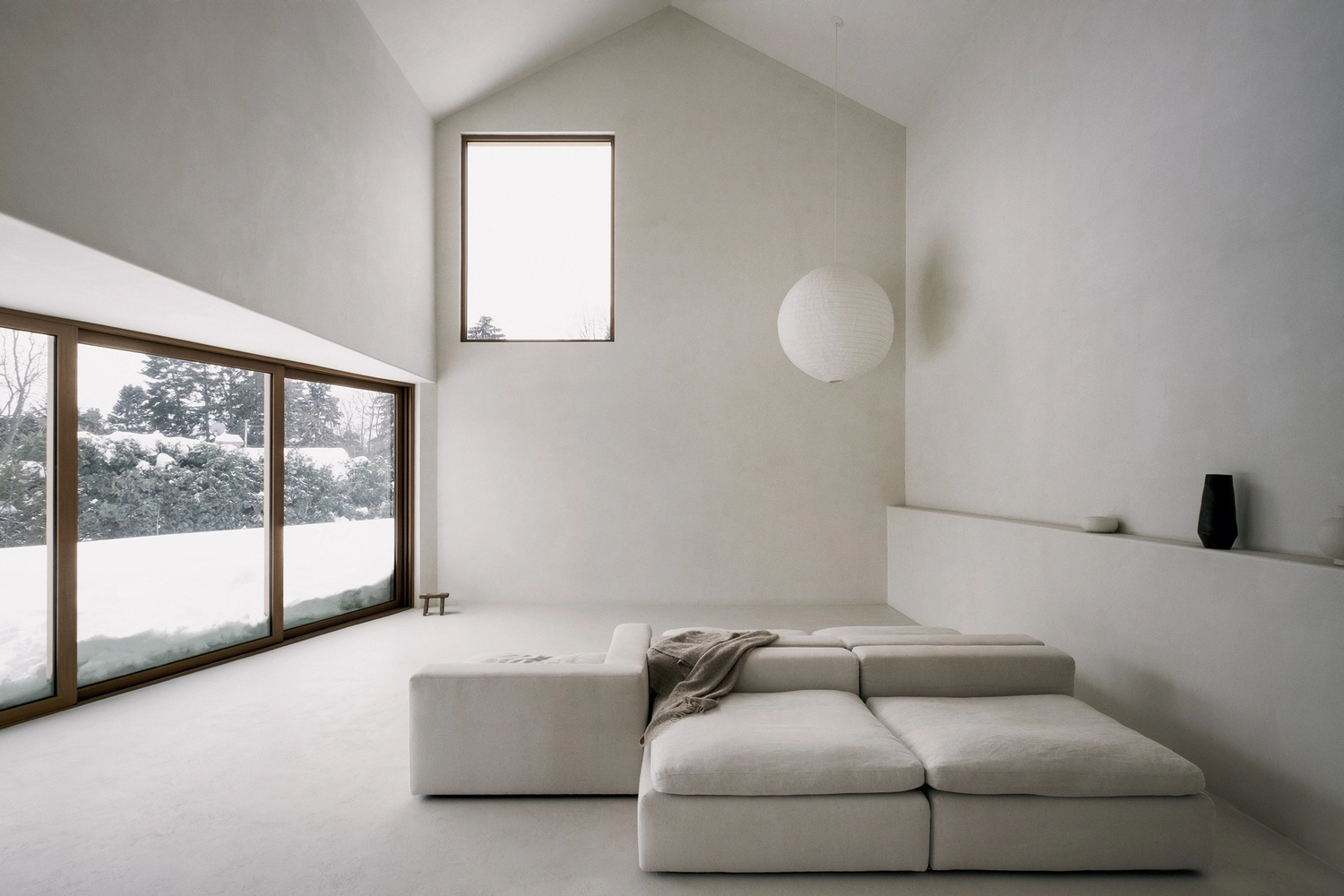The Art of Minimalism: Creating a Life of Joy and Simplicity

What Is Minimalism?
Minimalism is a lifestyle choice focused on intentionality and simplicity. At its core, minimalism involves owning fewer possessions and living only with what is truly needed. It means surrounding yourself with things that are essential and meaningful, removing anything that distracts you from living with purpose and freedom. By eliminating excess belongings, minimalists can concentrate on what truly matters whether that’s nurturing relationships, pursuing personal growth, or seeking enriching experiences. Minimalism is not about adhering to strict rules or living in a particular way but about finding a personal balance that allows for a more intentional and fulfilling life.
This approach helps individuals re-evaluate their values and priorities, leading to a clearer sense of purpose and greater satisfaction. Minimalism encourages you to focus on what aligns with your core values and to let go of what doesn’t. Through this process, minimalists can achieve a greater sense of freedom, reduce stress, and find more joy in the essential aspects of life.
The Intentionality of Minimalism
Minimalism is marked by clarity, purpose, and intentionality. It means intentionally promoting the things we value most and removing everything that distracts us from them. This intentionality leads to improvements in almost all aspects of life. While intentionality looks different for everyone, it requires each of us to dive deeper and become more introspective about our values and passions.
Freedom from Material Possessions through Minimalism
Modern culture often equates happiness with material accumulation. Minimalism challenges this notion, offering freedom from the relentless pursuit of possessions. It emphasizes gratitude for what one already has and seeks fulfillment through non-material means such as relationships and personal experiences. Embracing minimalism brings freedom from the all-consuming passion to possess, helping us step off the treadmill of consumerism and find happiness elsewhere.
Escaping Modern Mania with Minimalism
Our world operates at a feverish pace, with people constantly hurried, rushed, and stressed. We work long hours to pay bills but fall deeper into debt, rushing from one activity to another without completing anything. We stay in constant connection through our devices, yet meaningful relationships elude us. Minimalism slows down life, freeing us from this hysteria. It encourages disengagement from the unnecessary, keeping only the essentials and focusing on intentional endeavors that add value to life.
Embracing Consistency and Honesty in Minimalism
Many people live fragmented lives, portraying different personas in various settings around family, co-workers, and neighbors. This lifestyle requires an external image shaped by circumstances, advertising, or employer demands. In contrast, a minimalist life is unified and consistent, remaining the same in all situations. It is reliable, transparent, and adaptable, promoting honesty and integrity.
The Counter-Cultural Appeal of Minimalism
In a society that idolizes celebrities and material success, minimalism offers a quieter, calmer alternative. While the media celebrates those who accumulate wealth and fame, minimalists live attractive and inviting lives by consuming less and enjoying more. They often realize that chasing material success was misguided and find contentment in simpler, more meaningful pursuits.
The Internal Journey of Minimalism
Minimalism extends beyond the decluttering of physical spaces to address a profound internal transformation. While removing external clutter can create physical space, the deeper benefit of minimalism lies in its ability to foster internal unity and peace. Embracing minimalism involves significant changes in mindset, actions, and habits, leading to lasting happiness. This journey is not about adhering to a rigid set of rules but about discovering what truly works for each individual. It often requires radical shifts in how one approaches life, but the rewards grow as one progresses. This internal journey impacts relationships and overall life satisfaction, helping to address heart and soul issues. The process can be challenging, particularly at the start, but it offers a path to greater clarity and purpose. By sharing experiences and learning from both successes and failures, minimalism helps individuals apply these insights to their own lives, ultimately fostering a more meaningful and fulfilling existence.
The Achievability of Minimalism
Minimalism is completely achievable for anyone willing to pursue it. It doesn't require drastic measures but involves gradual, mindful changes. Many families, like mine, have transitioned from typical consumer lifestyles to minimalist living, finding it completely achievable and uniquely rewarding. Those genuinely interested in minimalism are often drawn to its principles and the profound benefits it offers.
Debunking Minimalist Myths
So what is this minimalism thing? It’s quite simple: to be a minimalist, you don’t have to live with fewer than 100 things, give up owning a car or a home, or forgo a career. You don’t need to live in exotic places or start a blog, and you certainly don’t need to avoid having children or be a young white male from a privileged background. These misconceptions often deter people from exploring minimalism, but they miss the point. Minimalism is not about adhering to restrictive rules but about finding freedom and purpose in your own way.
Minimalism as a Tool for Freedom
Minimalism is a tool that can assist you in finding real freedom. It offers liberation from fear, worry, overwhelm, guilt, and depression freedom from the trappings of the consumer culture we’ve built our lives around. It doesn’t mean that material possessions are inherently wrong; rather, it’s about the meaning we assign to them. Minimalism helps us reevaluate what’s truly important and make more deliberate choices about what we keep in our lives.
Embracing Deliberate Choices
Minimalism allows you to make decisions more deliberately. Whether you want to own a car or a house, raise a family, or have a career, minimalism can help you pursue these goals more thoughtfully. It’s about prioritizing what matters most to you and letting go of what doesn’t align with your values. For example, Leo Babauta has a large family and embraces minimalism, while Colin Wright owns only 51 things and travels extensively. Each path is unique, but minimalism has allowed both to lead purpose-driven lives.
The Shared Benefits of Minimalism
Despite differing lifestyles, minimalists experience common benefits from their practice. Minimalism has facilitated:
- Eliminating discontent
- Reclaiming time
- Living in the moment
- Pursuing passions
- Discovering missions
- Experiencing real freedom
- Creating more and consuming less
- Focusing on health
- Growing as individuals
- Contributing beyond oneself
- Ridding oneself of excess stuff
- Discovering purpose in life
Minimalism serves as a pathway to lasting happiness by shifting the focus from material possessions to the richness of life itself.

Additional Reasons to Consider Minimalism
Minimalism offers compelling advantages that extend beyond personal satisfaction, addressing broader societal and environmental issues:
Environmental Impact:
Adult Americans discard over 68 pounds of clothing annually, contributing to significant waste and environmental degradation (US National Library of Medicine cites the EPA Office of Solid Waste). By adopting minimalism, individuals can reduce this waste through more mindful consumption and extending the lifespan of products.
Financial Health:
Financial stability is another crucial aspect. Reports indicate that 20-21% of working Americans do not save any money for retirement, and many of those who do save only contribute up to 10% of their income (Bankrate.com). Minimalism promotes better financial health by encouraging reduced spending on non-essential items and prioritizing savings.
Overabundance:
The average American household is overwhelmed with clutter, possessing approximately 300,000 items (Los Angeles Times). Additionally, families spend an average of $1,700 annually on clothing alone (Forbes). Embracing minimalism helps individuals simplify their lives, reduce unnecessary expenditures, and focus on what truly matters.
Conclusion
Minimalism is not just a lifestyle choice; it's a profound approach to living that fosters clarity, intentionality, and freedom. By focusing on what truly matters and eliminating excess, minimalism helps individuals align their lives with their core values, leading to a deeper sense of purpose and fulfillment. It challenges societal norms around materialism, encouraging people to rethink their relationship with possessions and embrace a simpler, more meaningful existence.
Through minimalism, one can achieve a greater sense of freedom, not only from physical clutter but also from the mental and emotional burdens that come with overconsumption. It offers a pathway to improved financial health, environmental responsibility, and personal satisfaction. The journey towards minimalism may require introspection and significant lifestyle changes, but the rewards include a clearer sense of purpose, reduced stress, and lasting happiness.
Ultimately, minimalism is about making deliberate choices and finding balance in a world overwhelmed by excess. It provides the tools to live more intentionally, pursue what truly brings joy, and contribute meaningfully to the world. Whether through decluttering physical spaces or transforming internal attitudes, minimalism offers a roadmap to a more enriched and purposeful life.
FAQs
Q. Will minimalism automatically make me content?
Although it is a great start, it isn’t an instant cure. It is a pathway, not the end goal. Becoming a minimalist will give you more time and will free up more of your money than ever before. But we must focus on gratitude every single day in order to see the results. It’s the journey of intentional self-improvement and appreciating what we already have that will bring us contentment.
Q. Is minimalist living boring?
Minimalist living is the opposite of boring. It removes mundane activities that take away from spending time with our loved ones. Once we rid ourselves of the unnecessary, we’re able to decide what will define our lives. Some travel the world full-time. Others will find themselves more involved in their families’ lives than ever before. Becoming minimalist frees us to live a bigger life with a more passionate pursuit of our greatest purpose and goals.
Q. Does this mean I can’t be sentimental?
Remember, less is not the same as “none.” There are no specific rules to simple living and nobody is required to get rid of things that bring value to their life. Most minimalists keep some sentimental items in their life they just keep less than others. Instead of stuffing sentimental belongings in a storage unit or garage, they proudly display them in their homes.